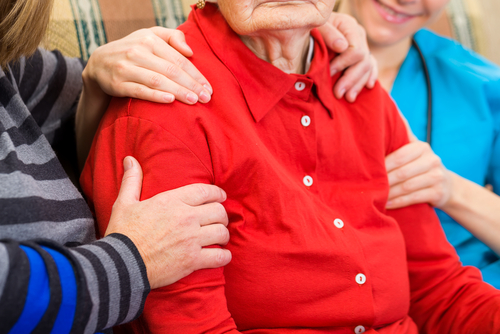Findings from the Colorectal Wellbeing Study indicate that after surgery, many colon cancer survivors experience a lack of affection and emotional and practical support, often resulting in depression and anxiety.
These results were recently presented in Dublin, Ireland, at the International Psycho Oncology Society (IPOS) Congress (Oct. 17-18).
Survivors of colorectal cancer form the largest group of cancer survivors. The Colorectal Wellbeing (CREW) study, funded by Macmillan Cancer Support and conducted by the Macmillan Survivorship Research Group and the University of Southampton in England, gathered information about the psychosocial needs of 1,000 colorectal cancer survivors who were followed from before they had surgery until five years afterward.
The findings presented at the IPOS Congress revealed that colon cancer survivors experienced a reduction in affection, social interaction, and emotional and practical support after their surgery. This finding was seen for up to two years after surgery, the researchers reported.
The results also showed that colorectal survivors who experience a lack of social support are at increased risk of having a poor quality of life. At the time of diagnosis, 5 percent of patients reported they had little to no affection in their daily lives. Two years after they were diagnosed with colon cancer, the lack of affection increased to 13 percent.
In terms of practical support, the results were identical. The researchers reported that two years after diagnosis, the number of patients who experienced a lack of practical support with their daily needs was more than double that at the time of diagnosis (12 percent vs. 5 percent).
Patients who lacked emotional support, meaning care, empathy, love, and trust from others, were three times more likely to have clinical depression and twice as likely to have clinical anxiety. If patients were living alone, they were twice as likely to have clinical depression and anxiety compared to those living with others.
Patients with a lack of emotional support were more than three times as likely to experience poor well-being, the researchers reported.
The results of the study also showed that patients who experienced poor social support or who lived alone were more likely to be female, older, live in deprivation, and have less self-confidence to manage their disease.
According to the nonprofit organization Macmillan Cancer Support, these findings show that people living with cancer have psychosocial needs that go beyond their medical care. These patients are in great need of emotional and practical support when they are receiving their medical treatments, and for years later.
Five years after his diagnosis, Ron Peck, 55, said he still feels a lack of emotional and practical support.
“I’d been warned that the support you have during your treatment can suddenly fall away,” he said in a press release. “I thought I was prepared for it, but I ended up feeling emotionally isolated and abandoned. You live your life around full-on treatment regimens, appointments and having regular opportunities to talk with your care team, then it suddenly stops.”
“There was a void where my care used to be and there was no-one to talk to about my ongoing side-effects,” he added. “Many of your friends who initially rallied around move on, too. They don’t appreciate the continued impact that cancer has on you. But all of this combined leaves you feeling isolated, you feel very low and it’s upsetting because you feel like you’ve been left to fend for yourself.”
“It is so important for people to have the help and support they need to manage the consequences of cancer after being diagnosed and treated,” said Prof. Claire Foster, chief investigator of the CREW study from the University of Southampton.
“Assessment of people’s needs early on in the recovery process and then at regular intervals would help identify those most in need,” she said. “There are vulnerable patient groups such as older people, those living alone and those experiencing anxiety and depression who are most likely to need additional support. People can feel isolated following their treatment and those with limited social support are at greater risk of this. More needs to be done to identify and help people who are struggling in the months and years following cancer treatment.”
Macmillan Cancer Support is a UK nonprofit that provides support for those who have been diagnosed with cancer. It offers services ranging from help with money concerns and advice about work to a free telephone helpline for those with cancer who feel the need to talk. Through its website, Macmillan provides valuable support resources for those living with cancer, their friends and family.
“This research shows the heartbreaking reality for thousands of people with cancer who are going through one of the most difficult times with no one to talk to, no one to give them a hug when they’re feeling down, no one to cook them a meal when they’re wiped out from chemotherapy,” said Lynda Thomas, chief executive at Macmillan Cancer Support. “It’s hard enough going through cancer when you have support, but without it, you must feel completely lost.”
“At Macmillan, we know that people with all types of cancer are trying to cope without help – and dealing with the devastating effect it can have on their recovery,” Thomas said. “We also know that sometimes these people do have friends and family who want to help but don’t know how or are worried they will say or do the wrong thing. We encourage people who have cancer and are feeling alone, as well as friends and family who want to help, to get in touch with Macmillan.”
Macmillan is asking cancer patients to have a full assessment of their psychosocial needs. The organization aims to provide cancer patients with care plans that address the emotional and practical implications of their cancer diagnosis.


